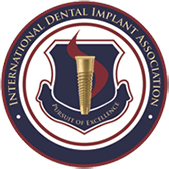
Swollen teeth and gums are often treated as though they are separate from the rest of a body. Toothaches are usually considered separate from earaches and other sinus issues, and are rarely (if ever) linked to other health issues.
In truth, though, your oral health plays a powerful role in your overall health, and should not be separated from general health concerns.
What Is Oral Health?
The term “oral health” is used to describe the general health and wellness of your oral cavity. The oral cavity consists of gum tissue, teeth, tongue, palates, and other oral tissues. The health of each of these components ultimately amounts to your dental health, and damage or disease in one of these areas can have a powerful effect on the others.
The Components of Oral Health
There are several components of oral health that play a pivotal role in managing the strength of your general health. The first two are common (teeth and gums), while the third refers to the aspects of your mouth that are often neglected or ignored in your cleaning and evaluation process, including your tongue, palate, and cheeks.
Teeth
Teeth are usually the components of oral health that most lay people focus on. This is largely due to the focus on keeping teeth strong and healthy that occurs in childhood. The focus on teeth is not necessarily negative, as the health of your teeth is certainly involved in the health of your body as a whole.
Gums
Gums are the second component of oral health that is typically focused on in dental offices and at home. Flossing is usually prescribed as the most effective way to maintain your gum health, but regular professional cleanings are also an important part of making sure your gums are well maintained.
Overall Health
The overall health of your mouth involves your tongue, palate, and the lining of your cheeks. Tongue brushing and scraping is typically considered adequate, while maintaining the health of your teeth and gums is usually enough to support the health of your palate and the lining of your cheeks.
Why Does Oral Health Matter?
Oral health matters because all aspects of the body are connected. Poor oral health can lead to issues elsewhere in the body–and dental health can signal the presence of health problems.
Oral health matters for the same reason that gastrointestinal health matters, or respiratory health matters: a decline in health in one part of the body leads to a decline in health in other parts of the body.
How does this occur?
There are two primary ways that oral damage leads to co-morbidity: inflammation and immune response.
Inflammation
Inflammation is the body’s warning sign that something is amiss. The exact type of damage that has led to inflammation is not always certain, but inflammation typically occurs in response to trauma, injury, and infection. Tooth decay is a form of infection, and can cause inflammation, and gum disease is an active form of inflammation that can lead to issues elsewhere in the body.
Immune Response
Immune responses are mounted in response to a host of conditions, the most common being viral infections and bacterial infections. Immune responses divert attention away from other areas of the body, and triggers inflammation and increased white blood cell counts.
Over time, without treatment, ongoing immune responses can lead to chronic health issues, including chronic pain, tenderness, and fever, all of which can create a cascade of other health concerns.
Comorbid Conditions
Although the exact role dental health plays in general health is not known, the two are definitively linked. People who have long-term or acute medical conditions are more likely to suffer from gum disease and decay, while people who have ongoing decay and gum disease are more prone to a slew of health conditions, such as heart disease.
Strange though it may seem, good oral hygiene is as important to your health as washing your hands, eating healthy food, and getting plenty of sleep. All of your body’s systems work in tandem to maintain homeostasis, and if one part of the whole is unhealthy, it causes other parts to move toward ill health, as well.
Dental health management is vital to health management as a whole.
Supporting Oral Health for Improved General Health
The role that dental health plays in overall health cannot be understated. While modern research has not yet determined the precise way that oral health and overall health are connected, the connection’s existence is undeniable.
From dental caries and subsequent tooth loss impairing the intake of healthy food to the greater likelihood of developing periodontal gum disease if you experience chronic inflammation, the health of your mouth is essential in tackling the health of your body, and regular dental visits should be regarded with the same degree of commitment as a yearly check up.





